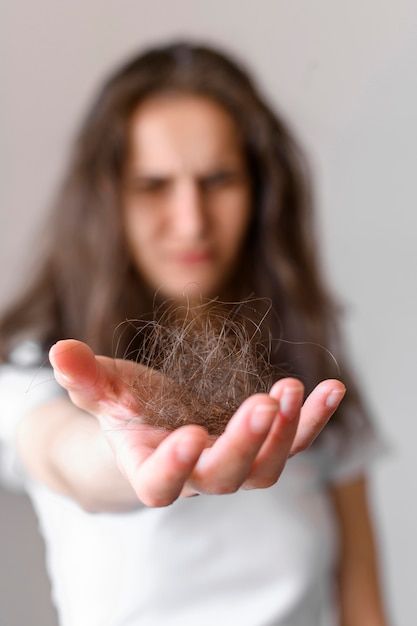Have you noticed that your hair is thinning? Or do you notice loose hair in the shower? Know that you are not alone. Hair loss in women is common. Although this can be a stress, it is usually treatable. The first step is to figure out the cause.

1. stress
Stressful events are one of the main causes of thinning hair in women. They cause your body to go into "survival mode," where it has to distribute fuel and energy to support its most important functions.
Each hair follicle goes through phases of growth and rest. The body under stress will push the hair from the growth phase to the resting phase, eventually causing it to fall out. This type of hair loss is called "telogen effluvium".
2. Diet
A sudden diet can have two negative effects on your hair. First, your body perceives rapid weight loss as a stressful event. It thinks you are starving. Second, it could mean you're not getting the nutrients your body needs to grow healthy hair. In times of stress or lack of nutrients, your hair is the first thing to be damaged.
3. hormonal changes and imbalances
Hormonal changes can affect hair growth whether you are off birth control pills or have just had a baby. In particular, higher estrogen levels make your hair thicker and fuller. When estrogen levels drop, hair falls out. Fortunately, hair loss should stop as your body adjusts to the new estrogen levels.
4. autoimmune diseases
Less commonly, thinning hair or hair loss in women can be caused by an autoimmune disease. This means that the body's immune system reacts to the hair and causes it to fall out. Autoimmune diseases that can affect hair growth in young women include systemic lupus erythematosus and alopecia areata.
5. hair styling
In middle age, we often pay for what we did when we were younger. When it comes to hair, that can mean all the traumatic styling we do in our 20s and 30s. Hair straighteners and hot combs can cause inflammation. Braids, pigtails and tight ponytails can stress the roots. These practices damage hair follicles, which can lead to scarring and permanent hair loss. The first sign of styling-related damage may be thinning of the hairline or hair loss on the top of the scalp.
While hair regrowth starts with a healthy lifestyle, there are also topical scalp treatments, medications, light therapy and cosmetic surgery that can help.
Since hair is an extension of your body, a healthy lifestyle is key to regrowing hair. Some steps you can take are.